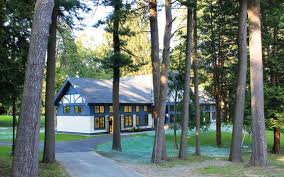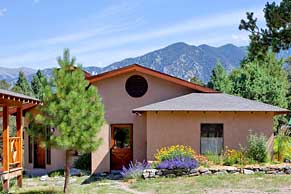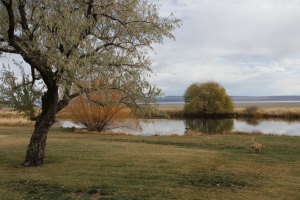Sometimes the best thing we can do for our writing practice is to get away. Daily routines and the people in our lives have a way of infringing on our precious writing time.
Following are a few residencies to whet your appetite…
Northeast
Martha’s Vineyard Writer’s Residency
Martha’s Vineyard, Massachusetts
“The Martha’s Vineyard Writer’s Residency was created to provide writer’s with the time and space to create. Each April, September and October writers of various genres convene in a former inn on the beautiful island of Martha’s Vineyard. It is our hope that this magical setting will inspire wonderful writing.”
Deadline: Rolling
Apply
Millay Colony
Austerlitz, NY
“The Millay Colony for the Arts offers one-month or two-week residencies to visual artists, composers and writers between the months of April and November. Residents artists get private rooms, studios and all meals during their stay at our pastoral campus. For lots of information about our residency program and how to apply, visit our Residencies page. The Colony also has a workshop series, with five-day workshop-retreats in writing, art, music and more.”
Deadline: October 1, 2014
Apply
Blue Mountain Center
Blue Mountain Lake, NY
“Blue Mountain Center, founded in 1982, provides a supportive working community for writers, artists, and activists. A 501(c)(3) nonprofit organization, the center also serves as a meeting place and resource for progressive movement building. We expand and deepen conversation among cultural workers and support projects that emerge from these dialogues.”
Applications for 2015 available November 1, 2014.
Apply
Yaddo
Sarasota Springs, NY
“Yaddo offers residencies to professional creative artists from all nations and backgrounds working in one or more of the following media: choreography, film, literature, musical composition, painting, performance art, photography, printmaking, sculpture, and video. Artists may apply individually or as members of collaborative teams of two or three persons. They are selected by panels of other professional artists without regard to financial means. Residencies last from two weeks to two months and include room, board, and studio.”
Deadline: November 1, 2014
Apply
West
Crestone Retreats
Crestone, Colorado
“Crestone Retreat Center is open to individual retreatants throughout the year except during our annual three-month Practice Period (January 11 – April 28), when the Center is closed to the public. Whether for a spiritual retreat, undistracted time for work or writing, or just to be in nature, retreatants can rent private cabins and enjoy the beauty and quiet of our area, and the mindful atmosphere of our Center.”
Deadline: Rolling
Apply
UCross
Ucross, Wyoming
“The Ucross Foundation provides living accommodations, individual work space, and uninterrupted time to approximately 85 individuals each year. Residencies vary in length from two weeks to six weeks. At any one time, there are up to nine individuals in residence, a mix of visual artists, writers and composers. In most cases, studios are separate from living quarters.”
Deadline: October 1, 2014
Apply
Jentel
Banner, Wyoming
“The Jentel Artist Residency Program offers dedicated individuals a supportive environment in which to further their creative development. Here artists and writers experience unfettered time to allow for thoughtful reflection and meditation on the creative process in a setting that preserves the agricultural and historical integrity of the land.”
Deadline: January 15, 2014
Apply
Middle America
Write A House
Detroit, Michigan
“Write A House is a twist on the Writer’s Residency.’ In this case, the writer is simply given the house, forever.”
Deadline: Currently closed for first Write a House.
Information about second Write a House.
Grin City
Grinnell, Iowa
“From April – October, Grin City’s residency program welcomes writers, visual and performance artists for stays of 3-6 weeks. Residents are provided housing and individual workspace on the Grin City farm complex a 1/2 mile north of the town of Grinnell, Iowa. Up to ten people can be a part of Grin City Collective at any point in time.”
Deadline: Various
Apply
Pacific Northwest
Playa
Sumner Lake, Oregon
“PLAYA is a retreat for creative individuals who are committed and passionate about their work, and who will benefit from time spent in a remote location. At PLAYA, we offer seclusion and quiet in a natural environment and the opportunity for interaction, if desired, with a cohort of residents and the local rural community. A Residency provides the time and space to create substantive work or to research and reflect upon one’s creative or scientific processes. Away from the urgencies of daily life, residents can focus on their projects, immerse in a desert landscape of basin and rangeland, and find inspiration through self-directed inquiry.”
Deadline: March 1, 2015
(Applications available soon.)
Apply
Which one(s) are you going to apply for?
*Descriptions were taken from each residency’s website.














